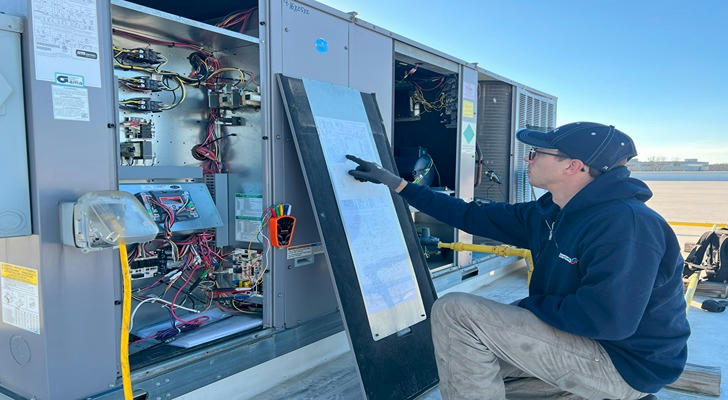Train for a High-Demand Career: HVAC Technician Training in the USA (2025 Guide)
🔥 HVAC (Heating, Ventilation, and Air Conditioning) technicians are in high demand across the United States — and 2025 is one of the best times to get started. With more homes and businesses upgrading to energy-efficient systems and aging technicians retiring, the job market is opening up fast.
According to the U.S. Bureau of Labor Statistics, HVAC jobs are projected to grow 6% through 2032, and the median pay in 2024 exceeded $54,000 per year, with top earners reaching $75,000 or more depending on location and certifications.

Why Choose HVAC? The Benefits First
Strong Salaries: Entry-level techs start around $19–$25/hour, with experienced technicians making $30–$40/hour.
High Job Security: HVAC services are essential in every season and every state.
Hands-On Work: Ideal for people who enjoy mechanical work, problem-solving, and working outside a traditional office.
Growth Opportunities: Many HVAC techs become supervisors, energy auditors, or start their own service businesses.
Certifications Pay Off: EPA 608, NATE, and state-level licenses can dramatically boost your income.
What You'll Learn in HVAC Training Programs
HVAC training programs — available at trade schools, community colleges, and some online platforms — typically last 3 to 9 months and cover:
Fundamentals of heating and cooling systems
Electrical systems and wiring
Airflow and ductwork
Installation techniques for AC units and furnaces
Troubleshooting and maintenance procedures
Refrigeration cycles
Safety protocols and EPA certification prep
Most programs include hands-on training and may offer job placement assistance upon completion.
🚀 Job Market Outlook
📈 Growing Demand:
Green building retrofits and climate change adaptation require HVAC upgrades.
States like Florida, Texas, Arizona, and California have year-round HVAC needs due to extreme weather.
Federal incentives for energy-efficient systems are boosting demand.
🏗️ Where the Jobs Are:
Residential repair companies
Commercial contractors
Property management firms
Government and military facilities
Hospitals and universities
✅ Who Is HVAC Training For?
HVAC training is ideal for:
High school graduates looking for a hands-on trade career
Career changers from construction, automotive, or warehouse jobs
Veterans transitioning to civilian careers
Individuals looking for stable, recession-resistant work
Many programs also offer evening or weekend classes to fit working schedules.
🎓 How to Choose the Right HVAC Program
When selecting an HVAC school or training program, look for:
Accreditation and state approval
Programs that include EPA 608 prep
Job placement assistance
Hands-on lab experience
Financial aid options or tuition reimbursement
Experienced instructors with real-world knowledge
📋 Getting Certified
To legally handle refrigerants, you’ll need EPA Section 608 certification. Most schools include this in their curriculum. Additional certifications to consider:
NATE (North American Technician Excellence)
HVAC Excellence
State-level licenses
These help boost your resume and may qualify you for higher-paying positions.
🔧 Final Thoughts: A Career with Long-Term Value
Becoming an HVAC technician isn’t just about earning a paycheck — it’s about building a stable, in-demand career. With a short training period, strong wages, and long-term growth potential, HVAC is one of the smartest trade paths in 2025.
If you're ready to work with your hands, solve real-world problems, and earn while you learn, HVAC training might be your perfect fit. Explore programs in your area today — your future could be just months away.
